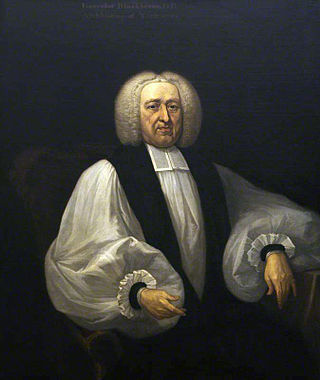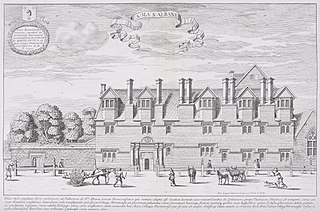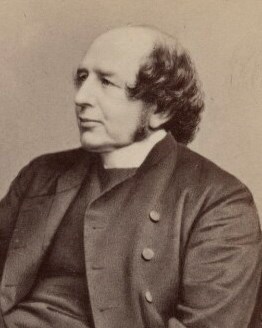Related Research Articles
The Regius Professorships of Divinity are amongst the oldest professorships at the University of Oxford and the University of Cambridge. A third chair existed for a period at Trinity College, Dublin.
Peter Turner (1586–1652) was an English mathematician.

John Greaves was an English mathematician, astronomer and antiquarian.

Lancelot Blackburne was an English clergyman, who became Archbishop of York, and – in popular belief – a pirate.

St Alban Hall, sometimes known as St Alban's Hall or Stubbins, was one of the medieval halls of the University of Oxford, and one of the longest-surviving. It was established in the 13th century, acquired by neighbouring Merton College in the 16th century but operated separately until the institutions merged in the late 19th century. The site in Merton Street, Oxford, is now occupied by Merton's Edwardian St Alban's Quad.
The White's Chair of Moral Philosophy was endowed in 1621 by Thomas White, Canon of Christ Church as the oldest professorial post in philosophy at the University of Oxford.

Walter Kerr Hamilton was a Church of England priest, Bishop of Salisbury from 1854 until his death.

John Gilbert was Archbishop of York from 1757 to 1761.

John Fielder Mackarness was a Church of England bishop.
Sir Nathaniel Brent was an English college head.
Arthur Bury, D.D. (1624-1714?) was an English college head and Anglican theologian of controversial views. His 1690 antitrinitarian work, The Naked Gospel, first published anonymously, was commanded to be burnt at Oxford, and, in a complex sequence of events involving legal action, Bury lost his position as Rector of Exeter College, Oxford after being expelled initially in 1689.
John Lamphire M.D. (1614–1688) was an English academic, who became a physician after being ejected from his college fellowship. He was later Camden Professor of Ancient History, and principal of Hart Hall, Oxford.

Daniel Whistler (1619–1684) was an English physician.
Thomas Good was an English academic and clergyman, and Master of Balliol College, Oxford. He is known as a moderate in and orthodox apologist for the Church of England, engaging with Richard Baxter and urging him to clarify a 'middle way'.
William Jane (1645–1707) was an English academic and clergyman, Regius Professor of Divinity at Oxford from 1680.
Henry Tozer (1602–1650) was an English priest and academic, a Puritan of royalist views, elected to the Westminster Assembly but never sitting there.

The position of Savilian Professor of Geometry was established at the University of Oxford in 1619. It was founded by Sir Henry Savile, a mathematician and classical scholar who was Warden of Merton College, Oxford, and Provost of Eton College, reacting to what has been described by one 20th-century mathematician as "the wretched state of mathematical studies in England" at that time. He appointed Henry Briggs as the first professor. Edward Titchmarsh said when applying that he was not prepared to lecture on geometry, and the requirement was removed from the duties of the post to enable his appointment, although the title of the chair was not changed. The two Savilian chairs have been linked with professorial fellowships at New College, Oxford, since the late 19th century. Before then, for over 175 years until the middle of the 19th century, the geometry professors had an official residence adjoining the college in New College Lane.
Samuel Thomas (1627–1693) was an English nonjuring clergyman and controversialist.
Samuel Lee (1625–1691) was an English Puritan academic and minister, late in life in New England.

Richard Newton was an English educator and clergyman.
References
 This article incorporates text from a publication now in the public domain : "Button, Ralph". Dictionary of National Biography . London: Smith, Elder & Co. 1885–1900.
This article incorporates text from a publication now in the public domain : "Button, Ralph". Dictionary of National Biography . London: Smith, Elder & Co. 1885–1900.